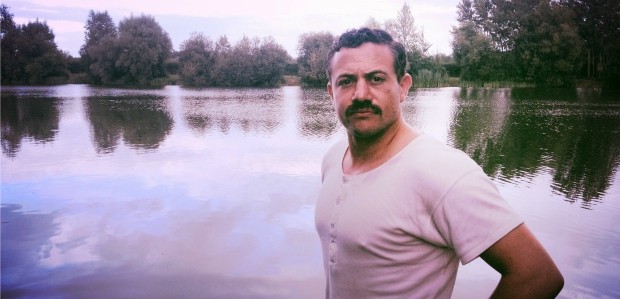
Captain Webb
From tragedy to triumph

In his play Educating Rita, Willy Russell famously articulates the difference between the tragedy and the merely tragic. Any event, such as a tree falling and killing a man, may be called tragic, but a real tragedy is one in which the hero is doomed by his fatal flaw. Character, not just circumstance, drives him inexorably to his doom.
I thought about this a lot when writing Captain Webb – the titular character was the first man to swim the English Channel in 1875. My source material was The Crossing, a fine biography of Matthew Webb by Kathy Watson, which explores the barmy world of Victorian sporting entertainment. After his heroic feat, Webb became an instant celebrity. But, plagued by the success of Paul Boyton, an American lifesaver and consummate self-publicist, Webb felt driven to prove himself in progressively ludicrous swimming feats. This culminated in his suicidal mission to swim across the Niagara in 1883.
My first drafts of the screenplay encapsulated this tragedy in its entirety – Webb’s successful Channel crossing formed the midpoint and the second half of the script documented his downfall in America, ending in his untimely death. What was Webb’s fatal flaw? Pride, stubbornness and a desire to defend the British bulldog qualities of pluck, honour and resilience from the threat of American showmanship and the commercialization of swimming. It was – and is – a compelling tragedy in the truest sense.
But when the substantial budget needed to tell this version of the film proved difficult to secure, the director Justin Hardy made a creative decision to cut our narrative in half. The next draft put Webb’s Channel crossing centre stage as the main suspense narrative, intercut with the backstory of his naval training, coaching by flamboyant one-time publican Fred Beckwith, and eventual success against all the odds. The story became a triumph instead of a tragedy.
At first I felt slightly cheated – it was, I thought, a little tragic to lose the thematic and human richness of that tragedy. Now Webb overcame his flaws, at least for the duration of that epic 21-hour swim. I had to recalibrate my characterisation in order to allow the audience to celebrate the hero’s physical and emotional journey and feel satisfied at his success.
Interestingly, however, removing the second half of the real life story for the new film narrative also required far more invention beyond the facts then I’d previously done. It allowed me to be bolder with the biographical material, particularly with regard to Webb’s imagined relationships with the supporting characters. And this is the stuff that keeps a writer going in their dark moments – much as brandy and cigars fortified Webb during his epic trek across the Channel. Even without it’s ‘real’ tragic ending I hope the film is richer for it.







COMMENTS